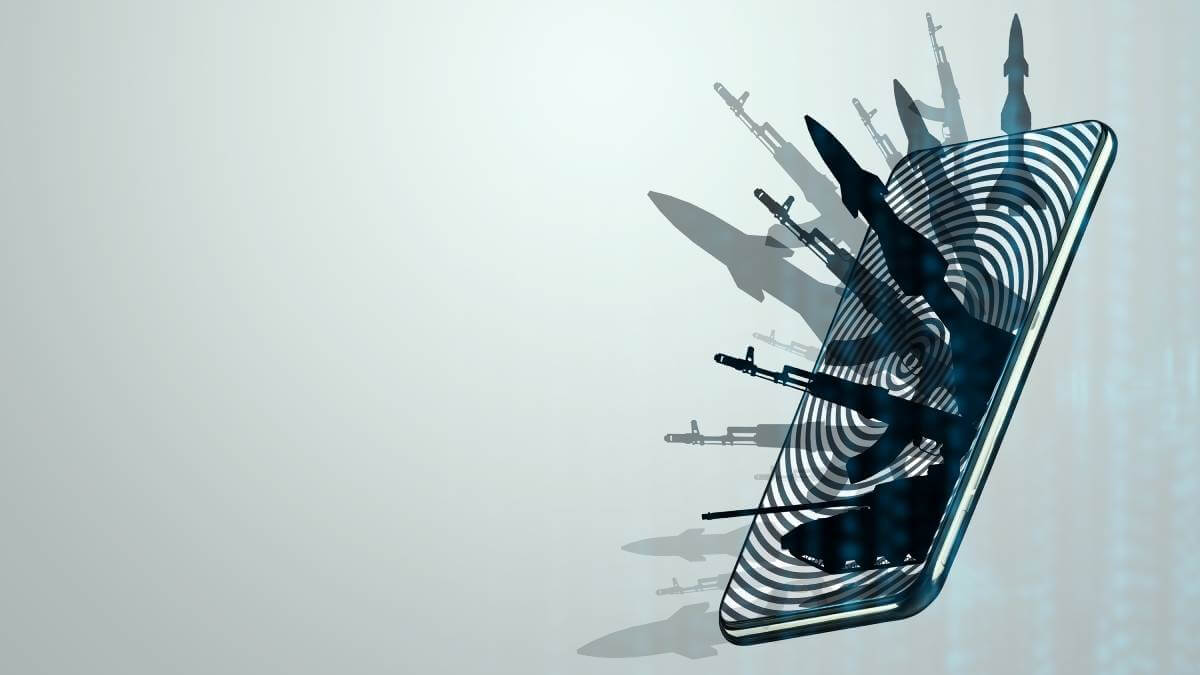As the daily body count was increasing on both sides of the Gaza/Hamas/Israeli conflict, and my head wanted to explode with both despair and horror, I realised the other body count of this war.
The other body count is, of course, truth – the first casualty of war. How many times have we heard or read that glib but accurate statement as we’ve studied history? There has always been an expectation that warring powers will issue whatever propaganda they wish in order to change our sympathies, to confuse the enemy and to demonise the ‘other’.
Most of us have seen posters issued in World War I and World War II, all depicting the enemy in various states of barbarism, doing atrocious things, or the brave soldiers of the ‘right’ side portrayed as noble, principled and loyal. Most information was scarce back then, limited to radio broadcasts and newspapers; news was highly censored, hard to find and downright untrue.
Propaganda the norm
Propaganda became the norm. Even letters back home from the front were savagely redacted, a mess of blackened sections, if you dared to tell any truth, or full of superficial frippery. But what has changed?
Now we get near instant images of battle fronts and bombings, provided the media company has reporters and photographers on the ground, or the army of people with mobile phones. But what you see from some sources is not always accurate.
Are your views of the world based on social media platforms that are notoriously trolled by all sorts of nefarious actors? Remember the Cambridge Analytica scandal of a few years ago, where lies and misinformation were deliberately fed to a select group of Facebook users to attempt to influence the US election and, no doubt, other choices too. Photos can be doctored, voices can be duplicated and false dialogue presented to the world.
Social media
Above all, social media companies need to be held more accountable for their reluctance to stop the spread of misinformation.
The trouble though, is once a rumour is out there in the public domain and has spread virus like, it is hard to take it back, no matter how much hard evidence is produced to the contrary. You only need to read about the multitude of conspiracy theories to see that in action. Why do the lies stick and the truth evaporate?
But perhaps all is not lost. It is interesting to hear of a new army if you like, of computer geeks and analysts, joining the fray to debunk claims and counter claims made during the Palestine/Israeli conflict. Cheap satellite imagery, combined with photographs and videos is making the business of issuing propaganda that is unverifiable that bit harder. Long may these geeks watch over us.
Anguish
Many of my friends express great anguish over watching news events of late. Many now refuse to even engage with what is happening, finding it too personally depressing and overwhelming. But despite the times and the hideousness of what we see, hear and read, we have to be vigilant, we have to find good quality long-form journalism from many reputable sources and we have to make sure, despite wanting to push all the horror of our times away from us, that we stay informed.
Otherwise, who will bear witness to the truth?
Or is this another body we are complicit in burying, and uttered with the banal and vacuous send-off of ‘our thoughts and prayers are with you’?
Do you find yourself shunning the news? Are you careful where you source your news? Share your thoughts in the comments section below.


I am extremely careful where I get my information from. I rarely watch the commercial stations as they sensationalize every story, I never use facebook, twitter or any web based organisations as there is a proliferation of misinformation and just lies. I don’t read certain online news services as they have a reputation for pushing their own versions of events. I listen to the experts not the politicians who often have an agenda both hidden and in plain sight. The ABC and SBS is probably the most factual but the ABC radio news and current affairs programs is probably better than them all. Even when I watch a documentary I keep in mind that the people who made it can also be pushing their own version of events. They can leave out pertinent facts, skip over important elements to the story, don’t do their research or just lie. These days I feel quite paranoid about who I can trust to give me the facts.